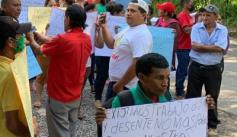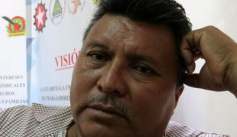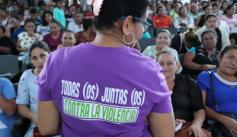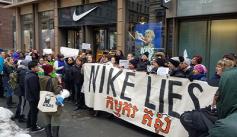Blog: Honduras
September 5, 2023
Honduran Melon Pickers Decry Fruit Giant Fyffes Refusal to Sign Agreement and Demand No Retaliation in Hiring
November 16, 2022
Honduran Union Leader Threatened with Imprisonment
January 18, 2020
Our Own Best Defense: How Unions Can Stop GBV at Work
June 14, 2019
How President Trump is Fueling Honduran Migration North
January 30, 2018
How Anti-Sweatshop Activists and Unions Made Severance Pay Mandatory
September 27, 2017
Pages
Browse blog by issue
- Child Labor (223)
- Forced Labor (35)
- Gender-Based Violence and Harassment (102)
- Health & Safety (38)
- Living Wage (18)
- 1 of 2
- next ›
Browse blog by country
- Bangladesh (39)
- Cambodia (3)
- Colombia (2)
- Cote d’Ivoire (7)
- Ghana (5)
- 1 of 4
- next ›
Blog archive
- October 2024 (1)
- August 2024 (1)
- June 2024 (1)
- March 2024 (1)
- February 2024 (1)
- September 2023 (2)
- March 2023 (2)
- February 2023 (1)
- November 2022 (1)
- March 2022 (1)
- 1 of 16
- next ›









